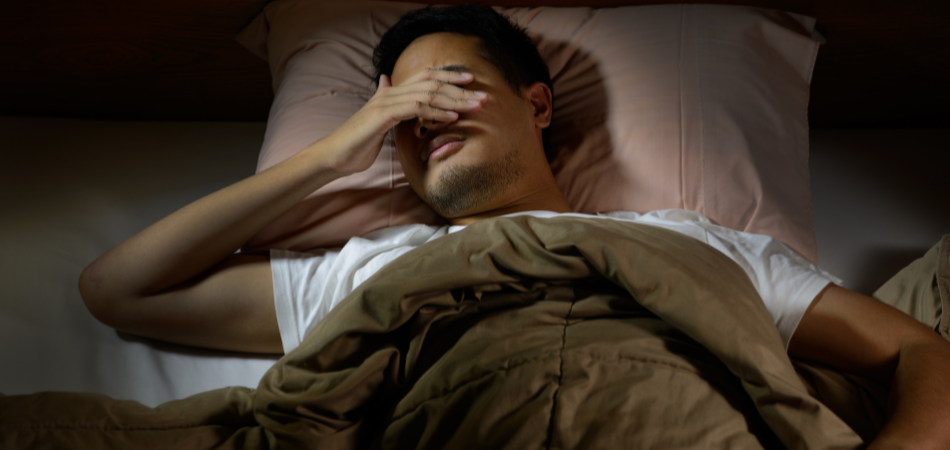Z-drugs addiction
Z-drugs are a class of medications typically prescribed for treating insomnia and other sleep disorders. While these medications can be effective in inducing sleep, they also have a high potential for abuse and addiction. One million Z-drug prescriptions were administered between 2017 and 2018 in England and while not everyone who takes Z-drugs will develop a dependence, the risk is always there. Zolpidem addiction, Ambien addiction and dependencies on other Z-drugs have become major issues which require professional treatment as soon as possible.

What are Z-drugs?
Previously, people with sleeplessness or other disorders that caused difficulty sleeping were typically prescribed benzodiazepines such as diazepam. However, these drugs are also associated with a high potential for abuse and addiction and so in an attempt to create a safer alternative, pharmaceutical companies developed Z-drugs, which are sedatives that act on the same receptors in the brain but with supposedly fewer side effects.
Despite these good intentions, and partly due to over prescription and overconfidence in their safety, Z-drugs are now also associated with the very real risk of abuse and addiction. Taken both as a prescription drug and abused for their sedative and euphoric effects, rehab centres like Liberty House are now treating more and more people for Z-drugs addiction.
What are the most common Z-drug addictions?
There are a number of Z-drugs which can cause sedatives addiction. Some of the most common Z-drugs addiction disorders we see at Liberty House include:
- Ambien addiction/zolpidem addiction: Ambien is the brand name for zolpidem and it is one of the most commonly prescribed Z-drugs. Unfortunately, it is also one of the most frequently abused, with people taking it recreationally for its hallucinogenic effects.
- Lunesta addiction/eszopiclone addiction: Lunesta is a common brand name for eszopiclone, a sedative-hypnotic medication used to treat insomnia. Like zolpidem, eszopiclone can also be abused for its hallucinogenic effects.
- Sonata addiction/zaleplon addiction: Sonata is the brand name for zaleplon, another sedative-hypnotic medication for sleep disorders. Zaleplon has a relatively short half-life and so it is often used as a “bridge” medication for people who are tapering off of other sleep aids but can be abused and addictive in its own right.
- Zopiclone addiction/ Imovane addiction: Zopiclone is the generic name for Imovane, a medication used to treat insomnia. Zopiclone addiction is characterised by a strong compulsion to keep taking the drug despite negative consequences.
How does Z-drugs addiction develop?
Z-drugs addiction is defined as a compulsive, chronic use of Z-drugs despite the negative consequences. There are two main ways you can become addicted to Z-drugs: by taking them as prescribed or by abusing them for their sedative effects.
Prescription Z-drugs addiction
People who take Z-drugs as prescribed can develop an addiction if they start to increase their dose without medical supervision or if they take the medication for longer than recommended.
For example, if you have been prescribed Ambien/zolpidem for a short-term sleep problem but find yourself still taking it several months later, you may be at risk of developing a tolerance, meaning that you need larger and larger doses of zolpidem to get the same effects. As your tolerance grows, so does your risk of developing a physical dependence on zolpidem and finally a multi-faceted zolpidem/Ambien addiction.
Z-drugs addiction resulting from abuse
People who abuse Z-drugs recreationally are also at risk of developing an addiction. This is because when you abuse these drugs, you are taking them in a way which is different to how they are intended to be used and this can cause changes in your brain chemistry which make you more likely to become addicted.
For example, people who engage in Lunesta/eszopiclone abuse by crushing and snorting the pills are putting themselves at risk of developing a Lunesta addiction as this method of administration increases the amount of the drug which reaches the brain and so alters the way it works. As with prescription Z-drug abuse, this can then lead to tolerance, physical dependence and Lunesta addiction.

Who is most at risk of becoming addicted to Z-drugs?
As with all forms of drug addiction, there are a number of factors which can increase your risk of developing an addiction to Z-drugs. These include:
- A family history of addiction
- Taking prescription Z-drugs other than as prescribed
- Abusing Z-drugs recreationally
- Using Z-drugs to self-medicate for underlying mental health conditions
- A history of trauma which leads to Z-drug abuse to deal with the difficult memories and emotions
- Easy access to Z-drugs such as through a friend or family member who has a prescription
Am I addicted to Z-drugs?
If you are worried that you may be addicted to Z-drugs, there are a number of questions you can ask yourself which may indicate you need help. Take our Z-drugs addiction quiz to help identify the signs of Z-drugs addiction:
- Do I feel like you need to take Z-drugs in order to function on a day-to-day basis?
- Am I taking larger and larger doses of Z-drugs in order to get the same effects?
- Do I take my prescription Z-drugs more frequently or in higher doses than instructed?
- Am I taking Z-drugs without a prescription?
- Have I been “doctor shopping” to get multiple prescriptions for Z-drugs?
- Do I take Z-drugs in order to get high rather than to help with sleep?
- Do I experience unpleasant zolpidem withdrawal/eszopiclone withdrawal/zaleplon withdrawal symptoms when I have tried to cut down on using those drugs?
If you answered yes to any of the above questions, you may be addicted to Z-drugs and in need of help.
How can Z-drugs addiction damage your health and well-being?
Z-drug addiction can lead to a number of physical and psychological health problems. These include:
- Insomnia
- Anxiety
- Mood swings
- Depression
- Agitation
- Irritability
- Memory problems
- Psychosis
- Loss of motor coordination
- Increased risk of accidents and injuries
- Overdose

As you become more and more preoccupied with using Z-drugs, your life may begin to revolve around obtaining and using the drugs which can lead to a number of other issues in your life such as relationship difficulties, job loss, financial problems and legal issues. It can be very hard to rectify these issues on your own as your addiction will do everything in its power to keep you in its grip.
How is Z-drugs addiction treated?
Because Z-drugs addiction has both physical and psychological components, the most effective way to overcome it is through a comprehensive recovery programme comprising three main stages: detox, rehab treatment and aftercare.
Z-drugs detox
The purpose of detox is to rid your body of the Z-drugs and to allow your brain chemistry to return to normal. This procedure must only be carried out under medical guidance at a professional inpatient detox facility such as Liberty House, as there is a potential for the emergence of severe Ambien withdrawal/Sonata withdrawal/Lunesta withdrawal symptoms.
Everyone’s Z-drugs withdrawal experience but the timeline for Ambien detox/zolpidem detox and most other Z-drugs will typically look something like this:
- Days one to two: A day or so after you finish taking Z-drugs, you will likely be irritable and anxious and experience muscle spasms. You are also likely to feel generally low and may also feel nauseous.
- Days two to five: This is the stage when withdrawal symptoms usually peak and you may feel intense nausea, indigestion and restlessness. You may also experience wild mood swings, have trouble sleeping, sweat excessively hallucinate and constantly crave drugs.
- Days five to fourteen: Withdrawal symptoms will usually become less severe after five days. However, you may still experience the above symptoms though they will be much milder. Your sleep patterns are likely to remain disrupted and you may feel very tired and down.
It is important to note that some people may experience more severe and longer-lasting withdrawal symptoms similar to those experienced with benzodiazepines. These can potentially last for months and are known as PAWS (post-acute withdrawal syndrome).
Z-drugs rehab
While detox will help break your dependence on Z-drugs, the purpose of rehab is to help you understand your Z-drug addiction and why it has such a hold over you. It also teaches you how to live without Z-drugs and how to cope with any challenging situations you may face in the future.
Liberty House provides inpatient Z-drug rehab where you will be able to shield yourself from any triggers and distractions, bond with staff and other clients and focus solely on your recovery. Our Z-drug rehab programmes include a number of evidence-based holistic therapies including:
- Cognitive Behavioural Therapy (CBT)
- Dialectical Behaviour Therapy (DBT)
- Motivational interviewing (MI)
- Group therapy and individual addiction counselling
- Family therapy
- Psychodynamic therapy
- Art therapy
- Yoga

Aftercare
When you leave rehab, aftercare is crucial for maintaining your sobriety in the long term. Liberty House’s aftercare programme takes the form of weekly group therapy sessions for a year which will help make your transition back to everyday life easier and provide ongoing peer support during difficult moments in recovery.
How to get help for Z-drugs addiction
Liberty House has a proven track record in helping people overcome their Z-drug addiction and start anew. Our recovery programmes will give you the tools and support you need to get your life back on track and start a brand-new life, free from Z-drugs.
Frequently asked questions
- Attending all aftercare therapy sessions
- Staying in close contact with your support network
- Keeping a journal to track your progress and any Z-drugs addiction triggers you may encounter
- Meditating or practising mindfulness techniques you learned in Z-drug rehab on a daily basis
- Avoiding people, places and things that remind you of your Z-drug abuse

